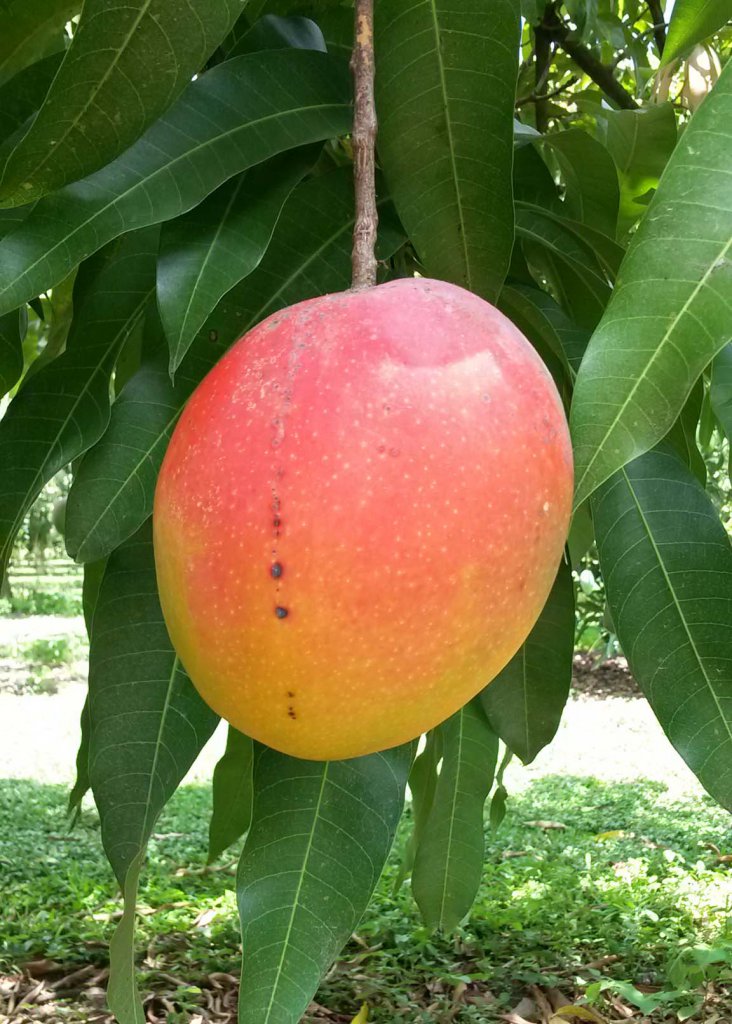Source: UF/IFAS
HOMESTEAD, Fla. – One of the most important mango varieties across the world has been sequenced by scientists at the University of Florida.

It’s an important breakthrough for the ‘Tommy Atkins’ mango – a variety that originated from Florida and is valued for its long shelf life, pest resilience and other key beneficial traits.
The scientists at UF’s Institute of Food and Agricultural Sciences (UF/IFAS) are trying to grow the domestic mango industry in the Sunshine State, because there is potential for greater profits, export volumes and wider consumer demand.
“We now have the complete genetic instructions of the ‘Tommy Atkins’ which is a primary export mango,” said Alan Chambers, tropical plant geneticist at UF/IFAS Tropical Research and Education Center. “We can now use this as a tool to answer questions like, ‘Why does Tommy Atkins have such a great peel color?’ ‘Why is Tommy Atkins so disease resistant?’ ‘What makes Tommy Atkins so great for shipping?’”
The genome is an organism’s complete set of genetic instructions. Each genome contains all the information needed to build that organism and allows it to develop successfully. The instructions in a genome are made up of DNA, which contains a unique chemical code that guides the fruit’s development, growth and health.
Chambers and his team believe their work is an essential tool that will be used to help grow mango varieties that are desired by consumers and farmers.
“With these instructions we can start to compare different plants,” he said. “For example, those instructions can help us understand why one plant has a red peel versus a yellow peel, or why one mango tastes like pineapple. The same instructions help us to find the DNA responsible for those differences.”
Click here for full story.









